Oracle databases have an integrated backup and restore service called Oracle Recovery Manager (RMAN), so why would anyone need a third-party backup tool? RMAN is a great utility that works within the database and manages issues around tablespaces. It is more like a recovery platform service than an existing backup system.
RMAN is a great help for Oracle backup systems because it removes the need for third-party tools to try to mess around within the database. In addition, it preserves the confidentiality and security of the database instance.
Although it is possible to run backups of Oracle databases manually or even by setting up a schedule, the native utilities can be improved but shouldn’t be replaced. Thus, an Oracle backup tool that can work with native processes and services, such as RMON, would be the best option to look for.
Here is our list of the eight best Oracle backup tools:
- N-able Backup This SaaS platform includes storage space for the backup and mirrors that storage on several sites to ensure against damage or loss.
- Nakivo This tool for backup, recovery, and replication can work with databases resident on any site or the cloud. Runs on Windows Server, Linux, over a VM, or resident on a NAS device.
- Actifio A cloud-based solution provided by part of the Google corporate family will backup your Oracle databases whether they are located on-site or on the cloud.
- Commvault Backup and Recovery This service is provided by an authorized partner of the Oracle Backup Solutions Program, and so it has the inside track on Oracle backup performance. It runs on Windows Server.
- Quest Rapid Recovery This tool backs up databases by taking snapshots through Oracle VSS. The tool takes care of Oracle Archive logs, too. It runs on Windows, Windows Server, and Linux.
- Bacula A free backup system that offers a complete solution for those who don’t want to pay the corporate players. It runs on Unix and Linux.
- Acronis Cyber Backup This flexible SaaS solution offers a range of backup storage targets, including cloud servers.
- Iperius Backup This service is offered in four plans, but only the top two include Oracle backups. It runs on Windows and Windows Server.
Oracle deployment
Oracle has its cloud platform, and there are options to run Oracle databases on other cloud platforms. So, you might have databases running on your site, on a cloud platform, or both. So, when you choose a backup system for Oracle database instances, you need to be sure that it will operate in your environment.
Luckily, in all deployment options, the Oracle environment includes services that your backup system. In just about every case, backup systems can also be used to replicate databases and recover them.
The best Oracle backup tools
Backup and disaster recovery tools are essential for all aspects of your IT system. Getting a good backup tool for your Oracle databases is important, so you don’t want to get stuck paying for an incomplete or unreliable service.
What should you look for in an Oracle backup tool?
We reviewed the market for systems to backup Oracle database instances and analyzed the options based on the following criteria:
- A service that can work with native Oracle recovery utilities
- Options for on-site or cloud operations
- The inclusion of cloud storage space or the ability to write to a cloud account
- Thorough activity logging
- Security features to protect access to the databases and backups
- The option to install backups to new locations
- A free trial or a demo system for a cost-free assessment period
- A good tool that is worth paying for or a free tool that is worth spending the time to install
With this set of criteria in mind, we have identified some very dependable Oracle backup and recovery systems that will keep your business operating no matter what happens.
You can read more about each of these services in the following sections.
1. N-able Backup
This cloud-based backup, recovery, and replications service includes the storage space for your backups, and those stores are mirrored on different sites to guarantee protection. In addition, the storage area is protected by AES-256 encryption, and so transfers between the backup server and your database location.
N-able doesn’t interface with RMAN in its backup processes but has its proprietary method. The reverse-path for restoration uses compression to speed up transfers and get data available as quickly as possible. The service can also be used to replicate or move a database. It can even manage the migration to a virtual environment from a physical host.
This service backs up other DBMSs and cloud services, such as Microsoft 365 and entire servers – Linux or Windows Server. A multi-tenanted configuration is available to suit managed service providers.
Pros:
- Backs up Oracle databases with block-level deduplication
- Deploys compression for a speedy recovery
- Backs up other DBMSs, virtualizations, applications, and entire servers
- It can be used for replication
- Covers cloud-based instances as well as on-site databases
Cons:
- It doesn’t offer an on-premises version
N-able backup is a subscription service, and you need to contact N-able for a quote. The Backup service is available for a 30-day free trial.
EDITOR’S CHOICE
N-able Backup is our top pick for an Oracle backup tool because it offers a package of backup systems and isn’t just limited to backing up Oracle databases. The service can backup other DBMSs, applications, such as the Microsoft 365 suite and entire servers. All transfers and provided storage space are encrypted with a 256-bit AES cipher.
Get a 30-day free trial: n-able.com/products/backup/trial
Operating system: Cloud-based
2. Nakivo
Nakivo can be used to back up a range of applications, not just Oracle databases. For example, it will also backup Hyper-V and VMWare virtualizations. This flexible system adapts its processes according to the quirks and requirements of the specific application that it is supporting. The system can also backup SQL Server, Microsoft 365, Active Directory, and Exchange Server.
As well as managing the backups of applications, such as Oracle DBMS, this tool can backup entire servers. That includes those on-premises systems running Windows Server and Linux and cloud accounts on AWC EC2 and Azure. It can be used for bare-metal restore scenarios as well. Back-up options include full and incremental, and the system can be set to run constantly in the background to back up each new change instantly.
Pros:
- Options for application backup or entire server backup
- Backup on-premises systems or cloud-hosted systems
- Keep it running constantly
Cons:
- You need to host the software on your server
The Nakivo service can be used to migrate systems, such as Oracle, even onto different platforms. The system will also manage replication. Unfortunately, the Nakivo service doesn’t include cloud storage, so you need to set up an account with your favored storage provider and enter its details in the Nakivo console. This software package installs on Windows Server, and you can get it on a 15-day free trial.
3. Actifio
Actifio is a division of Google, and it can back up systems running on your site or cloud platforms – it isn’t limited to operating on GCP. The company stresses the speed of its recovery process. It supplies an instant replacement for lost data.
Actifio doesn’t use RMAN in its Oracle backup strategy. Instead, the system stores copies of your database objects within an Oracle database, creating a live mirror of your instances. Those backups can be transferred to the platform of your choice. You can also store copies locally, for example, on tape or a removable storage device, for a faster recovery.
Pros:
- Offers high-speed data restore functions
- Plugs in your cloud storage account
- Priced by data throughput
Cons:
- No free trial
Actifio charges on a pre-paid subscription basis at a data volume rate. A credit for data protection can be applied to many instances over multiple sites and platforms. The controller for the service is a cloud-based system. The Actifio system can integrate with Oracle Data Guard and Exadata.
4. Commvault Backup and Recovery
Commvault is a partner in the Oracle Backup Solutions Program. However, this service isn’t limited to backing up Oracle databases. This service can also be used for migration and replication.
The Commvault Oracle service is more of a database data management system than just a backup system. The package includes systems for setting up development and test environments and migrating new products into production.
The data manager also archives off static data. That data archiving service reduces the size of tables, making important live data quicker to restore in the event of a disaster. The archiver also manages the refresh process so that older data can be brought back when needed and searched as though it never left.
The Commvault backup can be used for replication or migration and can mediate between incompatible architectural systems. In addition, all of the system’s functions can be automated and triggered by specified conditions, such as a time-based schedule or a rule based on the age of entries or the size of databases.
Pros:
- Within the Oracle Backup Solutions Program
- Platform-agnostic processes
- Data archiving
Cons:
- It doesn’t include cloud storage space
The central server of Commvault installs on Windows Server, and there are agents for Unix, Linux, Windows, and Windows Server. In addition, the Backup and Recovery service is available for review as a demo system.
5. Quest Rapid Recovery
Quest has several proprietary systems that it was building into its Rapid Recovery service, and there are a few new names to learn when looking into this service. The first is AppAssure, which is the front-end of the backup and recovery system. This service doesn’t just cover apps. It also works on entire systems. For example, one of the applications that can be secured with this AppAssure service is the Oracle DBMS.
The following term you need to know is ZeroIMPACT, the extraction system that Rapid Recovery uses to copy data. Quest Rapid Recovery uses the native Oracle volume snapshot service (VSS). This ZeroIMPACT service is platform-agnostic. It can extract data from any operating system or cloud platform. It also works with Oracle Archive logs.
An exciting feature of the recovery process is that it detects access by users to the database, records the searches they perform, and prioritizes the reinstallation of the data in that search if it has not already been restored.
Pros:
- An adaptable protection service
- Prioritized data recovery for requested searches
- Works with Oracle VSS snapshots
Cons:
- It doesn’t include storage space
Quest Rapid Recovery runs on Windows, Windows Server, and Linux.
6. Bacula
This free, open-source system is written in C++ and needs to be compiled. This is a do-it-yourself backup system with specialized routines for backing up Oracle databases and can also be used for backups of other applications. In addition, there is the possibility of using this software for a system-wide backup system.
The Bacula service can be set to run on a schedule so that you would get periodic backups. However, this is a complete copy each time, and there is no incremental backup option available.
Pros:
- Free to use
- Open source, so no possibility of hacker activity
- Will run on a schedule
Cons:
- No professional support
The Bacula system is available for Solaris and Linux. Get a download of the code and compile it yourself.
7. Acronis Cyber Backup
Acronis Cyber Backup is an intelligent disaster recovery system from a trusted brand. A nice feature of this tool is that it provides extra malware scanning and data protection services that block unauthorized encryption of Oracle files, thus protecting against ransomware. This service extends to all of the systems you choose to back up with the tool – the Acronis system isn’t limited to backing up Oracle databases.
The Cyber Backup service will include individual backup applications, virtualized systems, entire servers, and specialist equipment such as storage networks. This is a cloud-based system and you pay for the services that you require. So, for example, if you just want to back up Oracle databases, you pay for that, and if you also want to backup your mail server, you pay for that separately.
The Acronis platform operates a local agent on your system, which runs in a VM for security. However, you access the console through a browser because that is hosted on the Acronis servers. You can choose to save a local copy and a cloud store, and you can use that remote copy to replicate your database elsewhere.
Pros:
- Stores a local copy for a speedy recovery
- Backs up everything to the cloud
- Includes ransomware protection
Cons:
- An always-on system could slow system response times
A subscription to Acronis Cyber Backup includes 250 GB of cloud storage space to hold your backups. Sample the service by accessing a 30-day free trial.
8. Iperius Backup
Iperius has a menu of plans for its Backup product, but only two of those editions include a backup service for Oracle databases. These are the Advanced and Full plans. Iperius Backup can be used to protect a range of applications, including virtualizations, mail servers, and Microsoft 365. In addition, it can back up other DBMSs, including SQL Server, MySQL, MariaDB, and PostgreSQL.
As well as backing up specific applications, Iperius has a system backup service, which can be implemented as disk imaging or an incremental backup service. In all cases, the Iperius software needs to be installed on the host of the protected service. It is possible to network the service to feed into a central console hosted on Windows Server.
Iperius offers cloud storage space as an optional extra, but you can easily attach your cloud account to the backup system. The package includes the Iperius Recovery Environment, which can access damaged operating systems and reassemble broken file pointers. In addition, all backups can be compressed and encrypted for transfer speed and security.
Pros:
- Backup applications or entire servers
- Includes a recovery service for damaged operating systems
- Distributed processing with a central controller
Cons:
- It needs to be hosted on-site
Access a 21-day free trial or install the free Iperius Backup version – that doesn’t include Oracle database backup services.
L’article 8 Best Oracle Backup Tools est apparu en premier sur Comparitech.

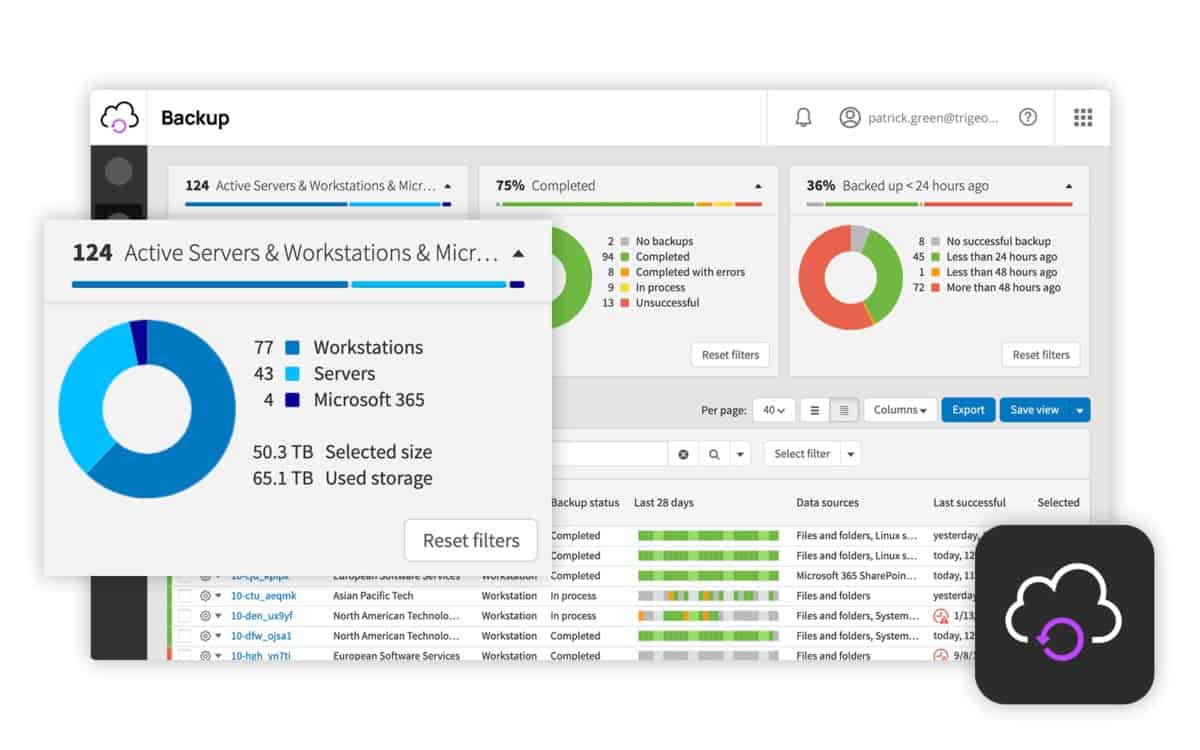
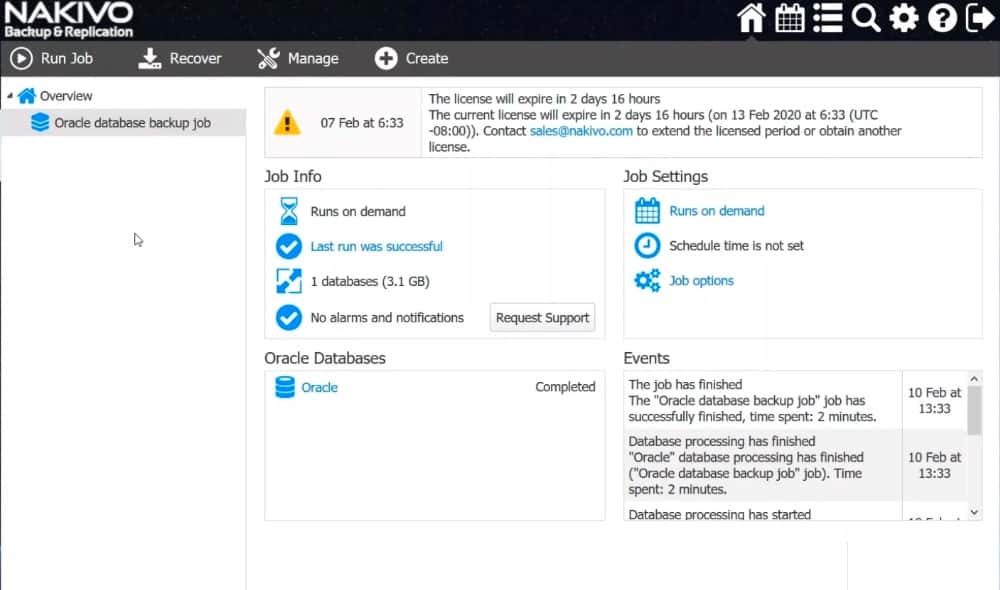
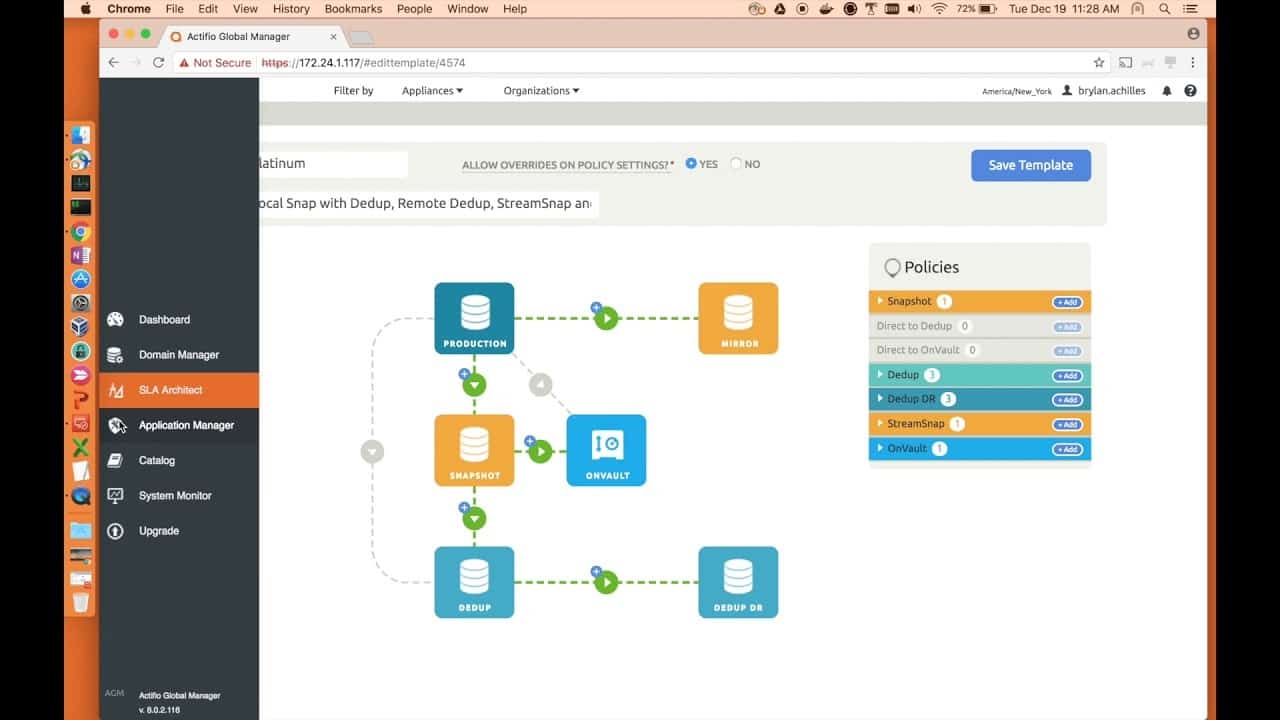
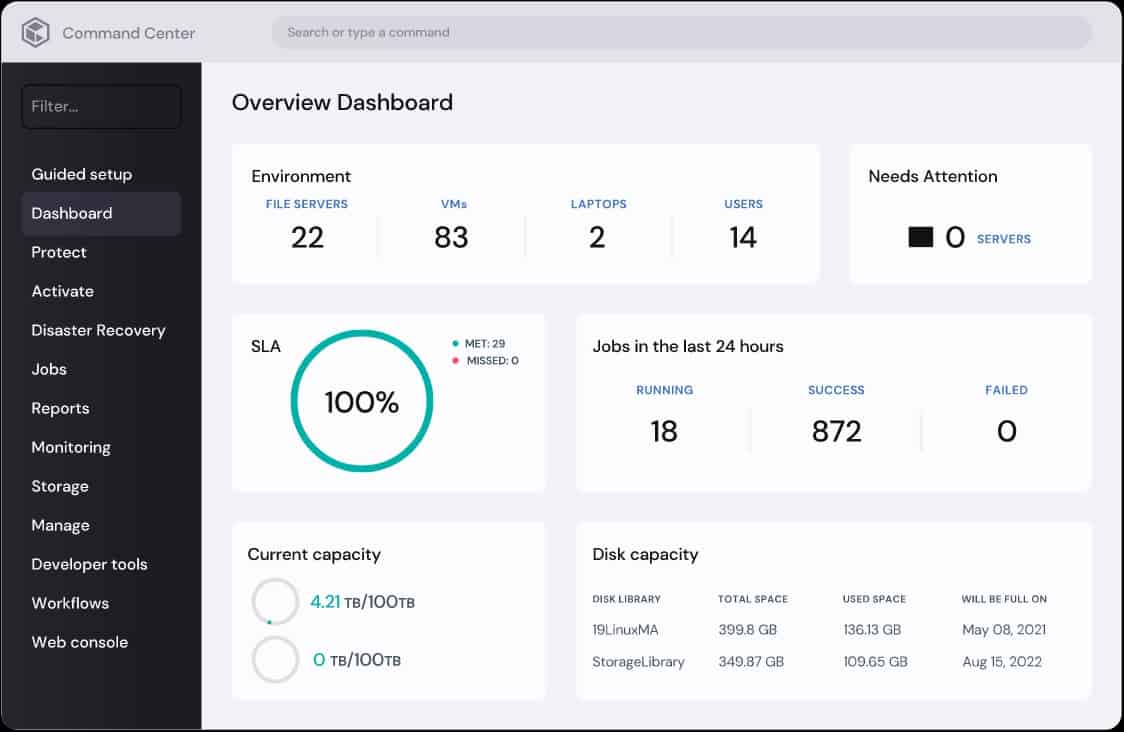
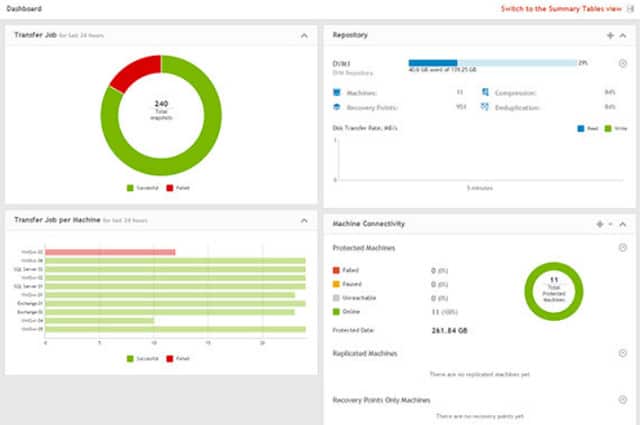
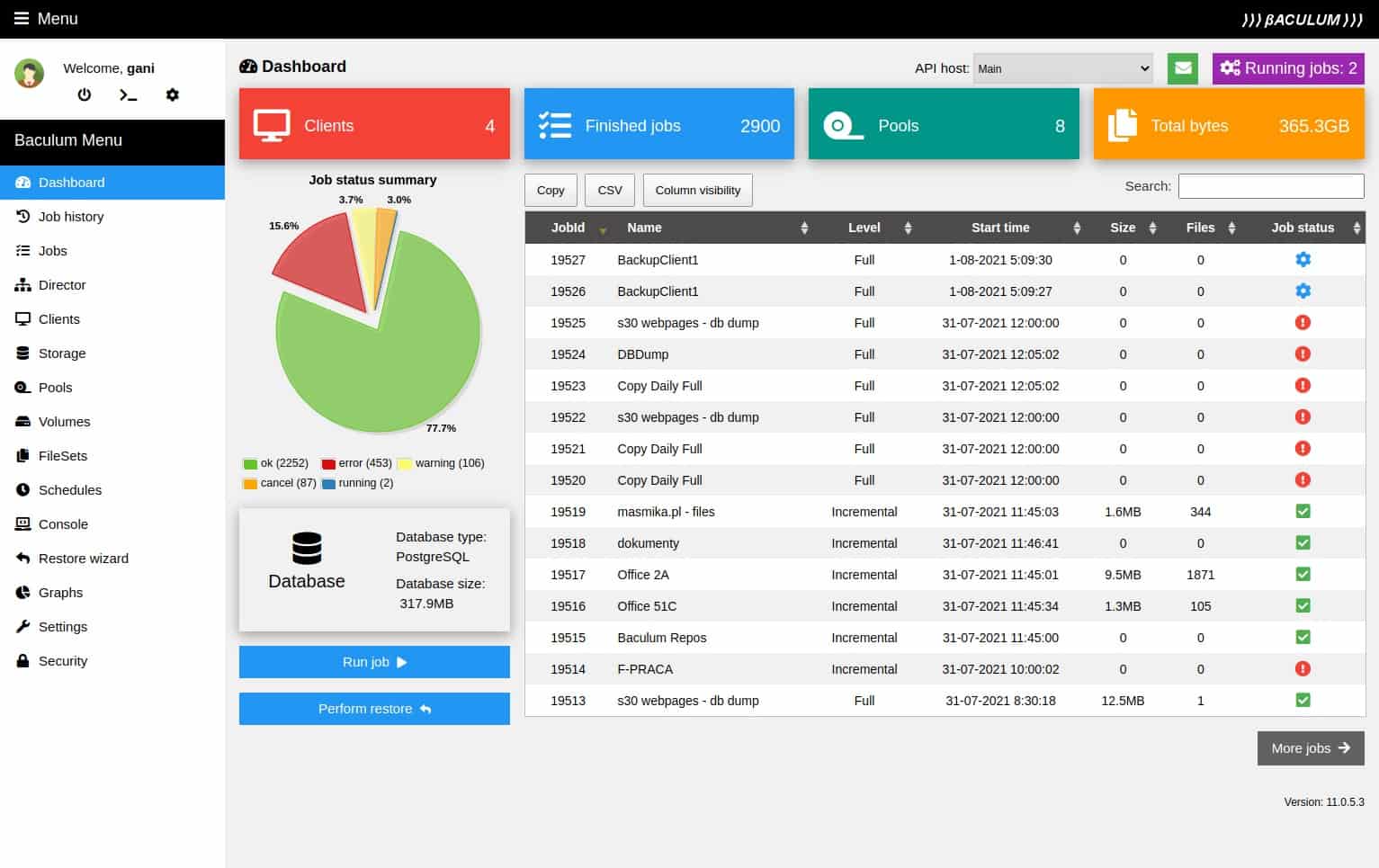
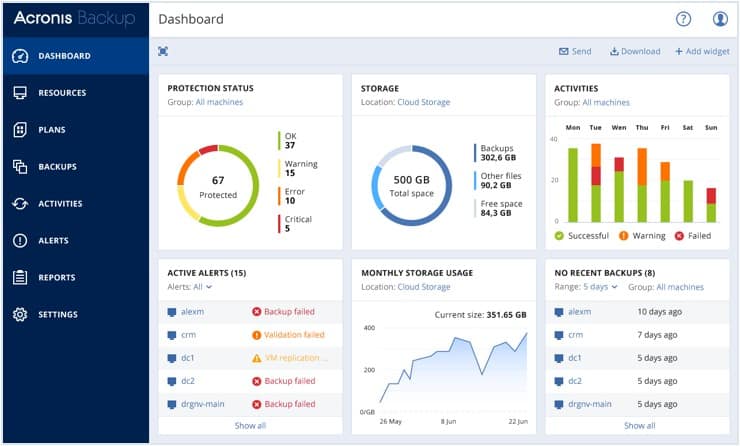
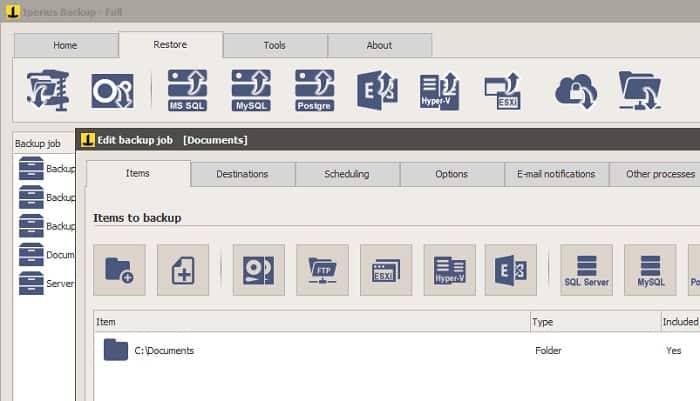
0 Commentaires